


A podcast about how hormones shape our world.
Latest episode:
Who you gonna call? Mythbusters!
About Hormonal
Hormones affect everyone and everything: from skin to stress to sports.
But for most of us, they're still a mystery.
Even the way we talk about hormones makes no sense. ("She's hormonal.")
So let's clear some things up. Each week, Rhea Ramjohn is asking scientists, doctors, and experts to break it all down for us.
Subscribe on your favorite platform:
Episodes
- Season 1
- Season 2

Episode 0
August 25, 2020
A Sneak Peek at Season 2
As we work hard on Season 2 of the Hormonal podcast, we’re dropping into your feed with a special request, and a small behind the...
5 min

Episode 1
October 11, 2020
Hot or not? Birth control & sex drive
How birth control affects your sexual desire, self image, and weight fluctuations.
25 min
Support Hormonal & the period tracker that’s different from the rest.
Subscribe to Clue Plus
Episode 2
October 19, 2020
The ABC: Abortion & Birth Control
What’s it like to get an abortion and the surprising ways the pandemic is changing abortion access.
34 min
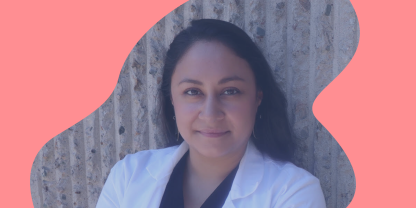
Episode 3
October 26, 2020
The many sides of side effects
Hormonal birth control: positive, negative, and neutral effects
33 min
Support Hormonal & the period tracker that’s different from the rest.
Subscribe to Clue Plus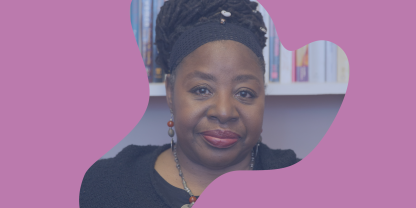
Reproductive choice and reproductive justice
with Dr. Loretta Ross
Episode 4
November 2, 2020
Reproductive choice and reproductive justice
Accessing birth control against the odds
35 min

Episode 5
November 9, 2020
Happy birthday, birth control
Controversy and celebration on the 60th anniversary of the pill
42 min


Episode 7
November 23, 2020
Risky business: birth control during COVID-19
COVID-19 is changing how we access birth control
30 min
Support Hormonal & the period tracker that’s different from the rest.
Subscribe to Clue Plus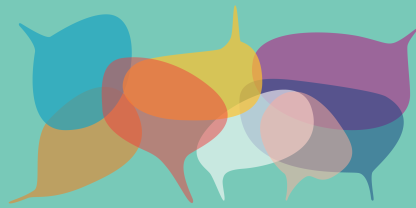
Who you gonna call? Mythbusters!
with Lynae Brayboy, Amanda Shea & Hajnalka Hejja
Episode 8
November 30, 2020
Who you gonna call? Mythbusters!
Clue’s Science Team busts your birth control myths
37 min
Credits
Season 2
Executive Producer: Kassandra Sundt
Host: Rhea Ramjohn
Editorial Help from: Amanda Shea, Steph Liao, Nicole Leeds
Clue Design: Marta Pucci & B.J. Scheckenbach
Web Team: Yomi Eluwande, Jane Parr-Burman, Maddie Sheesley
Special Thanks: Trudie Carter, Ryan Duncan, Aubrey Bryan,
Claudia Taylor, Léna Calvarin, Lynae Brayboy
Mixing and recording help from: Bose Park Productions & Rekorder Studios in Berlin.
About Clue
Clue is a period tracking app that uses data and science to help women and people wih cycles to understand their bodies. It's also a menstrual and reproductive health encyclopedia.
Learn more about the Clue app and check out what Clue is doing to advance menstrual health research.
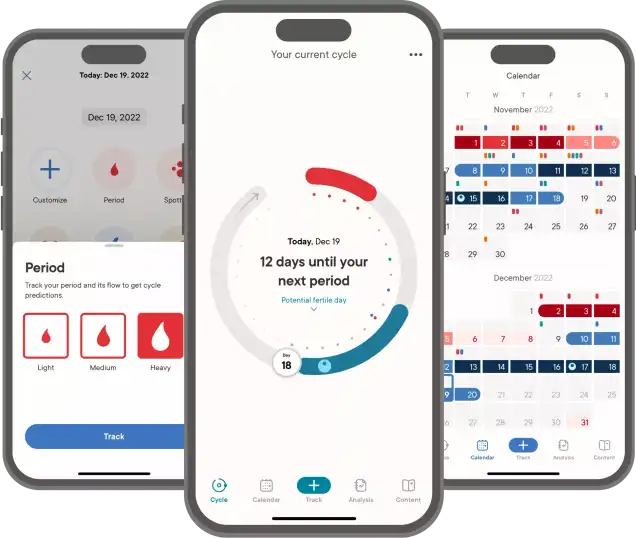
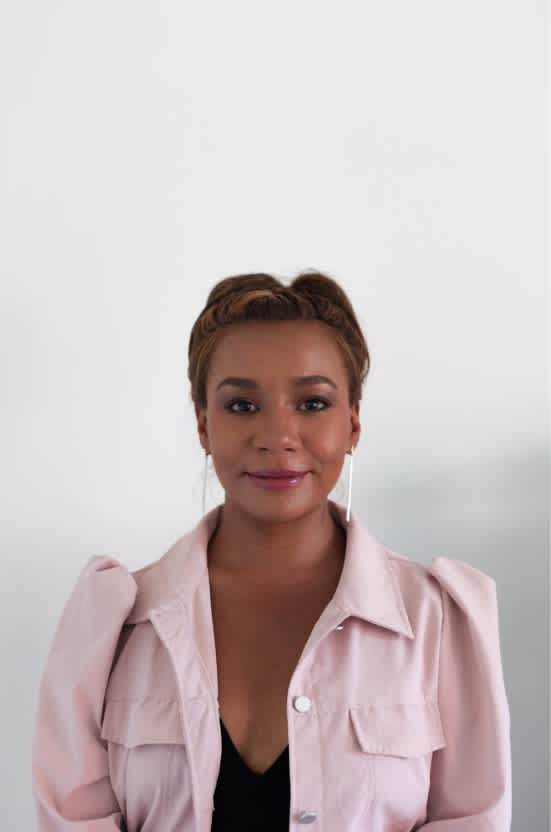

Rhea Ramjohn,
host of the Hormonal Podcast


Rhea Ramjohn,
host of the Hormonal Podcast
Your Host
The more knowledge we have about our hormones, our medical & menstrual care, and our reproductive rights, the more we empower ourselves and one another.
Hormonal has offered me the true privilege of speaking with people who have the expertise on the scientific knowledge about our hormones and cycles, as well as those sharing their lived experiences, caring for people with menstruation and how, all combined, shapes our lives everyday.
Gathering facts as well as personal stories are so vital to our understanding of our health, our his/herstories, and our cultures. I deem it a privilege because we haven't had many platforms nor opportunities for menstrual health information being broadly accessible.
Episode 7
How food affects PMS
How food affects PMS
The food we eat does a lot to influence our hormonal shifts, including our premenstrual experience.
About
Most of us appreciate the work that food does to nourish our bodies. On a macro level, things like proteins help repair muscles and carbohydrates give us energy. But micronutrients, things like vitamins and minerals, are really important to paving the way for hormones to do their jobs. And research suggests that proper nutrition is especially important for periods of big hormonal shifts— such as PMS.
For more on this research, we're joined by Liz Bertone-Johnson. She's a professor of epidemiology at the University of Massachusetts at Amherst.
Transcript
This transcript and interview were edited for clarity.
Rhea Ramjohn: Hi, it’s Rhea Ramjohn and you’re listening to Hormonal, brought to you by Clue. Clue is the period tracking app and menstrual encyclopedia — where you can get the answers to all of your questions, like, what are the ways my birth control could fail?
We often think of food as fuel. Energy to get us going throughout the day. But, food can be building blocks. Nutrients get broken down and put to use in our bodies. And nutrients also smooth the way for hormones do their job. And research suggests that proper nutrition, can actually affect how we feel — that includes how we feel during PMS.
But, what kinds of foods and nutrients are we talking about here? And what affects are under our control?
For more on this research, we're joined by Liz Bertone-Johnson. She's a professor of epidemiology at the University of Massachusetts Amherst.
Liz, welcome to Hormonal.
Liz Bertone-Johnson: Thanks so much for having me.
Rhea: So first of all why is it important for researchers to understand how food affects PMS symptoms?
Liz: Well, PMS is surprisingly common. There are estimates that maybe 90 percent of women experience menstrual symptoms before their period starts. These include symptoms like depression, anxiety, and the tendency to cry easily, and irritability. They also experience physical symptoms, very commonly, like breast tenderness and bloating, abdominal cramping. And where these symptoms are something of a nuisance for a lot of women, they're actually a pretty significant problem for 15 to 20 percent of women who experience them for multiple days each month, and pretty much before every menstrual period starts.
And these symptoms really can adversely affect quality of life and quality of relationships dramatically. So, our being able to understand what can help prevent these symptoms from occurring, or make them less severe, is really important.
Rhea: I absolutely agree with that. We'll get into some of the details of your research in just a moment. But what's the big headline here? How does what we eat affect our hormones and how we experience PMS?
Liz: There is a large and growing body of research to suggest that what we eat, especially in terms of micronutrients, really can make a big difference in terms of experience of menstrual symptoms and thus quality of life, for premenopausal women.
Rhea: Okay, so I understand that food can affect bodies and that PMS is affected by hormones but I'm missing the link there. How does food relate to hormones and PMS, exactly?
Liz: Oh. [sigh]
Rhea: Uh oh. That was a big sigh. [Laughter]
Liz: Yeah, it's it's so complicated.
Let me start by saying that: there are so many different kinds of menstrual symptoms and women can experience so many of them each month, and an individual woman can experience something very different from her best friend or her sister. And each individual's type of symptom is probably influenced by a large number of systems. Certainly hormones: estradiol and progesterone in particular.
But the way that these hormones interact with other systems in the body, such as neurotransmitters in the brain and other hormones that regulate blood pressure and fluid balance, and that genetic factors play a role. So, there are there are many systems at play that influence each individual menstrual symptom. So diet and micronutrients certainly play a role in all of these and this really complicated, like an orchestration of events.
So, I'll say micronutrients can certainly play a role in hormone sensitivity, and probably also play a role in how neurotransmitters are produced, and how available they are, and then hormones and neurotransmitters interact to create the conditions where women can be particularly sensitive to hormonal fluctuations.
Rhea: OK. So you mentioned quite a few bits of terminology there, some of them I'm familiar with because I have been menstruating for some time in my life now. And I do understand and experience PMS, as well. But you mentioned estradiol? Did I say that correctly?
Liz: Estradiol. Yeah.
Rhea: What exactly is that? And could you break down some of these terms for us, as... let's say, as if I were in middle school?
Liz: Absolutely. So the menstrual cycle, which, you know, begins when girls start having their period sometime between 11 and 13 happens, approximately every 28 days or once a month and is characterized by fluctuations in a few specific hormones. And the ones that we pay most attention to in terms of PMS, and the predominant hormones in the menstrual cycle are estrogens, and estradiol is the one that is most prevalent in the highest concentrations and premenopausal women and progesterone.
So estradiol tends to be highest in the first half of the menstrual cycle and then after ovulation in the middle of the cycle, progesterone starts to take over and be the hormone in the highest concentrations for the second half of the menstrual cycle. And those are the two that we pay the most attention to both in terms of their levels and their fluctuations, when we're looking at PMS, and what could cause PMS.
Rhea: OK. I see what you're saying. So, just going back to food for just a moment. And how food affects our hormones. You mentioned micronutrients. When I think about food and nutrients, I think about the major vitamins: Vitamin D, Vitamin E etc.. Of course Vitamin C as well. What do you mean exactly by micronutrients?
Liz: So for micronutrients, we think about both vitamins and minerals. And for PMS in particular, the vitamins and minerals that have made the most difference or that seem to be the most strongly associated with menstrual symptoms and PMS, are specific vitamins like Vitamin D and B vitamins, of which there are many. But the ones that we have seen the strongest relationships with PMS, are thiamin and riboflavin and maybe folate as well. And then, in terms of minerals, there are lots of good data suggesting that calcium is particularly important for preventing PMS and, also some information on iron, in particular, non heme iron which is the version that's found in vegetable foods, not the kind that's found in meats and maybe also potassium.
Rhea: OK, so let's take this into the real world, everyday context. Personally, I am not a big fan of milk products. It's not that I'm lactose intolerant. I just simply don't like it. So if there is a Vitamin D deficiency in me, what should I expect? What kind of role should I expect that it's going to play on my cycle every month? And you can give me examples of not just Vitamin D but how do any of these micronutrients actually play out for people who are vegetarians or vegan et cetera.?
Liz: Well, let's talk about B vitamins which are important for the production of some of the neurotransmitters that are potentially related to PMS. Things like serotonin, which you might have heard of in the context of common antidepressants — which are selective serotonin reuptake inhibitors. So serotonin is a really important neurotransmitter that's associated with depression and anxiety.
So, if B vitamin levels are low from low dietary intake, then an individual woman, who's perhaps deficient in some B vitamins, may have lower levels of serotonin or may have a harder time either producing serotonin or serotonin in her brain might not last long enough. And then when she experiences hormonal fluctuations in the second half of the menstrual cycle, then she doesn't have serotonin around to help keep her mental health stable during those periods.
Rhea: I see what you’re saying.
So if I get this right, it’s not like B Vitamin, in this case, is like supercharging a serotonin molecule. It’s more like Vitamin B helps smooth out the roadways, so to speak, so the serotonin can more efficiently do its job. And so… in this example, if you have a normal fluctuation in hormone levels, it might hit someone harder during this premenstrual phase, if they are actually lower in this vitamin.
[Sponsor Break]
Announcer: Hormonal is brought to you by Clue. The period tracking app, and menstrual health encyclopedia, that takes you, AND your cycle seriously.
Amanda: I've been a Clue user for probably four to five years at this point
Announcer: That’s Amanda, now she’s the Head of Content at Clue. But, before that, she was a Clue user. She says she liked the app because, to her, it feels better than the other period tracking apps. No pink. No flowers. No euphemisms.
Amanda: I had been using a period tracker before but it was super pink and weird and basic and when I downloaded Clue I was like, Whoa this is different. Serious. Like they're taking this stuff seriously.
Announcer: To support the science-backed app that treats you like an adult, subscribe to Clue Plus.
Clue Plus funds the work here at Clue. We don’t sell your data. We don't show you a bunch of ads. And, Clue was founded and is led by women.
For more information — check out Clue.Plus
Alright, back to the show.
[End of Sponsor Break]
Rhea: Ok. So let’s say I have really severe PMS like you’re describing. How would I know if it’s related to poor nutrition or some other factor? How would I know which vitamin or nutrient I’m lacking? How would we find that out?
Liz: It's really very hard to know. Someone certainly could go to their doctor and have blood tests to see if they're sufficient in Vitamin D or B vitamins. It's probably more likely that you would recognize that you were experiencing a vitamin deficiency that led to menstrual symptoms if you increased your dose or you increased your intake of these vitamins and you felt better.
So, a lot of what we do to treat PMS is try different therapies and see if things get better. And then that kind of retrospectively points to what maybe what the cause of the symptoms or the contributors to the symptoms were.
Rhea: Hmm. I see. So does that mean that the everyday patient is basically a guinea pig when they're walking into the doctor's office?
Liz: Well, I don't know that I would say guinea pig, because that suggests that we don't really know whether something has the possibility of working in a physiologic context.
I think it's more that each individual woman is so complicated and has so many different potential contributors to her symptoms, that, it's really hard for a physician to know what the individual constellation of contributors for her situation is going to be. So, I think doctors generally start by recommending treatments that have the highest probability of improving symptoms whether they're antidepressants or hormonal contraception — oral contraceptives in particular. And then if those treatments don't seem to be making a difference in reducing symptoms and improving quality of life, then they might look at more specialized treatments that would target different pathways that are less commonly affected.
Recommendations for dietary changes are somewhat less common for PMS in part because it's hard unless you're really evaluating someone's diet and figuring out what they could be deficient in, it's hard to have a targeted therapy that is going to really just focus on B vitamins or Vitamin D.
I think in general, B vitamins are fairly well appreciated as contributing to menstrual symptoms or making mental symptoms better. So physicians might recommend B-complex as a supplement or might recommend Vitamin D. One of the interesting things about our research is that we haven't found that vitamins and minerals from supplements are as effective at reducing the risk of symptoms as vitamins and minerals from food sources.
Rhea: Oh I see. That's really interesting. But this sounds in general like a really difficult path for a patient. It just seems like there's a lot of something that could be or you know doing a lot of tests and sort of like doing a process of elimination. What kind of other research can be implemented to give doctors more options and thereby patients more information about their bodies?
Liz: That's a really great question. I think one of the things that I have found a limiting factor in the research that exists today is how PMS is often just lumped together as a single condition and a lot of the treatment trials looking at ways to improve symptoms and the more ideological research looks at PMS as one thing and not as a variety of different things. I think research that can start to pull apart the single diagnosis and look at subtypes and look at individual symptom clusters which perhaps are more likely to have a single etiology than PMS overall, which is the definition can include one hundred and fifty different symptoms, not all in the same woman hopefully, but that someone with PMS could have any one of, or more multiple of, 150 symptoms. But moving towards looking at PMS in terms of its subtypes and the symptoms in particular that are effective or are affected could make a big difference.
Rhea: OK, so let's talk a little bit about the gut flora and hormone levels. What about them? I've heard this term "second brain" come up a lot, as in our guts our second brain, what we eat affects our guts and our hormones. So can you tell me a little bit more about that relationship.
Liz: Ahhh. Another big sigh. [laugh]
Rhea: I know. I mean you mentioned before that the science seems or the studies seem to show that it's better to get your vitamins from the food, than from let's say these little packets and tablets. So tell us a little bit more about that.
Liz: So. I think scientists are in the last 5 to 10 years really starting to appreciate how important the microbiome and gut flora in particular are to daily functioning both in terms of hormone levels but also in terms of mental health. And I think in terms, and where PMS is concerned, potentially a lot of the psychological symptoms, such as depression and anxiety. So, we have millions and millions of microbes in our guts and they are responsible for certainly producing and metabolizing some hormones. They're also important in the production of some vitamins and vitamins in particular, and contribute to the development of neurotransmitters.
So having a healthy gut in terms of the foods that you eat in particular, prebiotics and probiotics, it's important for good health in a lot of ways and probably for PMS in particular.
Rhea: OK. Thank you. I just have two more questions for you Liz. Your research looks at clinical PMS symptoms. So basically, the top 10 percent most extreme or severe symptoms, but what can the other 90 percent of us take away from this research?
Liz: I think some of the main take home messages from our research are that what you eat really makes a difference in terms of menstrual symptoms. And that's true, if you have severe symptoms. And it's probably true if you have mild symptoms as well. I think our research suggests that it's important that you have a balanced diet that you're consuming enough vitamins and minerals from food sources in particular probably vitamins and minerals from fruits and vegetables and from healthy lean meats as well as vegetarian sources, and dairy products, if you are someone who consumes dairy products.
Rhea: OK. And just a final question, from your end as a researcher what questions do you think still need to be asked in this field?
Liz: I would like to see more research that does include looking at the microbiome and gut flora. I'd like to see more research that really looks at how individuals’ symptoms, what the source of individual symptoms are, what causes individual symptoms.
I think because we think of PMS as one big thing and each individual woman's or a person who menstruates experience is different, us developing more tools that can let us look at individual level experience and treat the individual patient. It's going to be really important, rather than a one size fits all approach.
Rhea: I would absolutely love to see that, on a personal note, it would be great if I could customize exactly which vitamins and micronutrients I need each month, especially if it's going to aleve PMS symptoms, right?
Liz: Absolutely.
Rhea: So. Liz thank you so very much. This conversation has been great. Thank you for joining me on the Hormonal podcast.
Liz: Thank you so much for having me.
Rhea: Professor Elizabeth Bertone-Johnson is a professor of epidemiology at the University of Massachusetts in Amherst.
Hormonal is brought to you by Clue. If you like the podcast, subscribe and rate us five stars on your platform of choice. Or find us on social media!
To support the work here at Clue — subscribe to Clue Plus. Every cent goes towards informing you — that includes the app and the archives of meticulous menstrual health information on the Clue website. Including the answers to the question at the top of the show. Check the links in the show notes for more.
You can find out more about Clue Plus at Clue.Plus

Episode 7
November 11, 2019
How food affects PMS
The food we eat does a lot to influence our hormonal shifts, including our premenstrual experience.
About
Most of us appreciate the work that food does to nourish our bodies. On a macro level, things like proteins help repair muscles and carbohydrates give us energy. But micronutrients, things like vitamins and minerals, are really important to paving the way for hormones to do their jobs. And research suggests that proper nutrition is especially important for periods of big hormonal shifts— such as PMS.
For more on this research, we're joined by Liz Bertone-Johnson. She's a professor of epidemiology at the University of Massachusetts at Amherst.
"So having a healthy gut in terms of the foods that you eat in particular, prebiotics and probiotics, it's important for good health in a lot of ways and probably for PMS in particular. "
Rhea Ramjohn: Hi, it’s Rhea Ramjohn and you’re listening to Hormonal, brought to you by Clue. Clue is the period tracking app and menstrual encyclopedia — where you can get the answers to all of your questions, like, what are the ways my birth control could fail?
We often think of food as fuel. Energy to get us going throughout the day. But, food can be building blocks. Nutrients get broken down and put to use in our bodies. And nutrients also smooth the way for hormones do their job. And research suggests that proper nutrition, can actually affect how we feel — that includes how we feel during PMS.
But, what kinds of foods and nutrients are we talking about here? And what affects are under our control?
For more on this research, we're joined by Liz Bertone-Johnson. She's a professor of epidemiology at the University of Massachusetts Amherst.
Liz, welcome to Hormonal.
Liz Bertone-Johnson: Thanks so much for having me.
Rhea: So first of all why is it important for researchers to understand how food affects PMS symptoms?
Liz: Well, PMS is surprisingly common. There are estimates that maybe 90 percent of women experience menstrual symptoms before their period starts. These include symptoms like depression, anxiety, and the tendency to cry easily, and irritability. They also experience physical symptoms, very commonly, like breast tenderness and bloating, abdominal cramping. And where these symptoms are something of a nuisance for a lot of women, they're actually a pretty significant problem for 15 to 20 percent of women who experience them for multiple days each month, and pretty much before every menstrual period starts.
And these symptoms really can adversely affect quality of life and quality of relationships dramatically. So, our being able to understand what can help prevent these symptoms from occurring, or make them less severe, is really important.
Rhea: I absolutely agree with that. We'll get into some of the details of your research in just a moment. But what's the big headline here? How does what we eat affect our hormones and how we experience PMS?
Liz: There is a large and growing body of research to suggest that what we eat, especially in terms of micronutrients, really can make a big difference in terms of experience of menstrual symptoms and thus quality of life, for premenopausal women.
Rhea: Okay, so I understand that food can affect bodies and that PMS is affected by hormones but I'm missing the link there. How does food relate to hormones and PMS, exactly?
Liz: Oh. [sigh]
Rhea: Uh oh. That was a big sigh. [Laughter]
Liz: Yeah, it's it's so complicated.
Let me start by saying that: there are so many different kinds of menstrual symptoms and women can experience so many of them each month, and an individual woman can experience something very different from her best friend or her sister. And each individual's type of symptom is probably influenced by a large number of systems. Certainly hormones: estradiol and progesterone in particular.
But the way that these hormones interact with other systems in the body, such as neurotransmitters in the brain and other hormones that regulate blood pressure and fluid balance, and that genetic factors play a role. So, there are there are many systems at play that influence each individual menstrual symptom. So diet and micronutrients certainly play a role in all of these and this really complicated, like an orchestration of events.
So, I'll say micronutrients can certainly play a role in hormone sensitivity, and probably also play a role in how neurotransmitters are produced, and how available they are, and then hormones and neurotransmitters interact to create the conditions where women can be particularly sensitive to hormonal fluctuations.
Rhea: OK. So you mentioned quite a few bits of terminology there, some of them I'm familiar with because I have been menstruating for some time in my life now. And I do understand and experience PMS, as well. But you mentioned estradiol? Did I say that correctly?
Liz: Estradiol. Yeah.
Rhea: What exactly is that? And could you break down some of these terms for us, as... let's say, as if I were in middle school?
Liz: Absolutely. So the menstrual cycle, which, you know, begins when girls start having their period sometime between 11 and 13 happens, approximately every 28 days or once a month and is characterized by fluctuations in a few specific hormones. And the ones that we pay most attention to in terms of PMS, and the predominant hormones in the menstrual cycle are estrogens, and estradiol is the one that is most prevalent in the highest concentrations and premenopausal women and progesterone.
So estradiol tends to be highest in the first half of the menstrual cycle and then after ovulation in the middle of the cycle, progesterone starts to take over and be the hormone in the highest concentrations for the second half of the menstrual cycle. And those are the two that we pay the most attention to both in terms of their levels and their fluctuations, when we're looking at PMS, and what could cause PMS.
Rhea: OK. I see what you're saying. So, just going back to food for just a moment. And how food affects our hormones. You mentioned micronutrients. When I think about food and nutrients, I think about the major vitamins: Vitamin D, Vitamin E etc.. Of course Vitamin C as well. What do you mean exactly by micronutrients?
Liz: So for micronutrients, we think about both vitamins and minerals. And for PMS in particular, the vitamins and minerals that have made the most difference or that seem to be the most strongly associated with menstrual symptoms and PMS, are specific vitamins like Vitamin D and B vitamins, of which there are many. But the ones that we have seen the strongest relationships with PMS, are thiamin and riboflavin and maybe folate as well. And then, in terms of minerals, there are lots of good data suggesting that calcium is particularly important for preventing PMS and, also some information on iron, in particular, non heme iron which is the version that's found in vegetable foods, not the kind that's found in meats and maybe also potassium.
Rhea: OK, so let's take this into the real world, everyday context. Personally, I am not a big fan of milk products. It's not that I'm lactose intolerant. I just simply don't like it. So if there is a Vitamin D deficiency in me, what should I expect? What kind of role should I expect that it's going to play on my cycle every month? And you can give me examples of not just Vitamin D but how do any of these micronutrients actually play out for people who are vegetarians or vegan et cetera.?
Liz: Well, let's talk about B vitamins which are important for the production of some of the neurotransmitters that are potentially related to PMS. Things like serotonin, which you might have heard of in the context of common antidepressants — which are selective serotonin reuptake inhibitors. So serotonin is a really important neurotransmitter that's associated with depression and anxiety.
So, if B vitamin levels are low from low dietary intake, then an individual woman, who's perhaps deficient in some B vitamins, may have lower levels of serotonin or may have a harder time either producing serotonin or serotonin in her brain might not last long enough. And then when she experiences hormonal fluctuations in the second half of the menstrual cycle, then she doesn't have serotonin around to help keep her mental health stable during those periods.
Rhea: I see what you’re saying.
So if I get this right, it’s not like B Vitamin, in this case, is like supercharging a serotonin molecule. It’s more like Vitamin B helps smooth out the roadways, so to speak, so the serotonin can more efficiently do its job. And so… in this example, if you have a normal fluctuation in hormone levels, it might hit someone harder during this premenstrual phase, if they are actually lower in this vitamin.
[Sponsor Break]
Announcer: Hormonal is brought to you by Clue. The period tracking app, and menstrual health encyclopedia, that takes you, AND your cycle seriously.
Amanda: I've been a Clue user for probably four to five years at this point
Announcer: That’s Amanda, now she’s the Head of Content at Clue. But, before that, she was a Clue user. She says she liked the app because, to her, it feels better than the other period tracking apps. No pink. No flowers. No euphemisms.
Amanda: I had been using a period tracker before but it was super pink and weird and basic and when I downloaded Clue I was like, Whoa this is different. Serious. Like they're taking this stuff seriously.
Announcer: To support the science-backed app that treats you like an adult, subscribe to Clue Plus.
Clue Plus funds the work here at Clue. We don’t sell your data. We don't show you a bunch of ads. And, Clue was founded and is led by women.
For more information — check out Clue.Plus
Alright, back to the show.
[End of Sponsor Break]
Rhea: Ok. So let’s say I have really severe PMS like you’re describing. How would I know if it’s related to poor nutrition or some other factor? How would I know which vitamin or nutrient I’m lacking? How would we find that out?
Liz: It's really very hard to know. Someone certainly could go to their doctor and have blood tests to see if they're sufficient in Vitamin D or B vitamins. It's probably more likely that you would recognize that you were experiencing a vitamin deficiency that led to menstrual symptoms if you increased your dose or you increased your intake of these vitamins and you felt better.
So, a lot of what we do to treat PMS is try different therapies and see if things get better. And then that kind of retrospectively points to what maybe what the cause of the symptoms or the contributors to the symptoms were.
Rhea: Hmm. I see. So does that mean that the everyday patient is basically a guinea pig when they're walking into the doctor's office?
Liz: Well, I don't know that I would say guinea pig, because that suggests that we don't really know whether something has the possibility of working in a physiologic context.
I think it's more that each individual woman is so complicated and has so many different potential contributors to her symptoms, that, it's really hard for a physician to know what the individual constellation of contributors for her situation is going to be. So, I think doctors generally start by recommending treatments that have the highest probability of improving symptoms whether they're antidepressants or hormonal contraception — oral contraceptives in particular. And then if those treatments don't seem to be making a difference in reducing symptoms and improving quality of life, then they might look at more specialized treatments that would target different pathways that are less commonly affected.
Recommendations for dietary changes are somewhat less common for PMS in part because it's hard unless you're really evaluating someone's diet and figuring out what they could be deficient in, it's hard to have a targeted therapy that is going to really just focus on B vitamins or Vitamin D.
I think in general, B vitamins are fairly well appreciated as contributing to menstrual symptoms or making mental symptoms better. So physicians might recommend B-complex as a supplement or might recommend Vitamin D. One of the interesting things about our research is that we haven't found that vitamins and minerals from supplements are as effective at reducing the risk of symptoms as vitamins and minerals from food sources.
Rhea: Oh I see. That's really interesting. But this sounds in general like a really difficult path for a patient. It just seems like there's a lot of something that could be or you know doing a lot of tests and sort of like doing a process of elimination. What kind of other research can be implemented to give doctors more options and thereby patients more information about their bodies?
Liz: That's a really great question. I think one of the things that I have found a limiting factor in the research that exists today is how PMS is often just lumped together as a single condition and a lot of the treatment trials looking at ways to improve symptoms and the more ideological research looks at PMS as one thing and not as a variety of different things. I think research that can start to pull apart the single diagnosis and look at subtypes and look at individual symptom clusters which perhaps are more likely to have a single etiology than PMS overall, which is the definition can include one hundred and fifty different symptoms, not all in the same woman hopefully, but that someone with PMS could have any one of, or more multiple of, 150 symptoms. But moving towards looking at PMS in terms of its subtypes and the symptoms in particular that are effective or are affected could make a big difference.
Rhea: OK, so let's talk a little bit about the gut flora and hormone levels. What about them? I've heard this term "second brain" come up a lot, as in our guts our second brain, what we eat affects our guts and our hormones. So can you tell me a little bit more about that relationship.
Liz: Ahhh. Another big sigh. [laugh]
Rhea: I know. I mean you mentioned before that the science seems or the studies seem to show that it's better to get your vitamins from the food, than from let's say these little packets and tablets. So tell us a little bit more about that.
Liz: So. I think scientists are in the last 5 to 10 years really starting to appreciate how important the microbiome and gut flora in particular are to daily functioning both in terms of hormone levels but also in terms of mental health. And I think in terms, and where PMS is concerned, potentially a lot of the psychological symptoms, such as depression and anxiety. So, we have millions and millions of microbes in our guts and they are responsible for certainly producing and metabolizing some hormones. They're also important in the production of some vitamins and vitamins in particular, and contribute to the development of neurotransmitters.
So having a healthy gut in terms of the foods that you eat in particular, prebiotics and probiotics, it's important for good health in a lot of ways and probably for PMS in particular.
Rhea: OK. Thank you. I just have two more questions for you Liz. Your research looks at clinical PMS symptoms. So basically, the top 10 percent most extreme or severe symptoms, but what can the other 90 percent of us take away from this research?
Liz: I think some of the main take home messages from our research are that what you eat really makes a difference in terms of menstrual symptoms. And that's true, if you have severe symptoms. And it's probably true if you have mild symptoms as well. I think our research suggests that it's important that you have a balanced diet that you're consuming enough vitamins and minerals from food sources in particular probably vitamins and minerals from fruits and vegetables and from healthy lean meats as well as vegetarian sources, and dairy products, if you are someone who consumes dairy products.
Rhea: OK. And just a final question, from your end as a researcher what questions do you think still need to be asked in this field?
Liz: I would like to see more research that does include looking at the microbiome and gut flora. I'd like to see more research that really looks at how individuals’ symptoms, what the source of individual symptoms are, what causes individual symptoms.
I think because we think of PMS as one big thing and each individual woman's or a person who menstruates experience is different, us developing more tools that can let us look at individual level experience and treat the individual patient. It's going to be really important, rather than a one size fits all approach.
Rhea: I would absolutely love to see that, on a personal note, it would be great if I could customize exactly which vitamins and micronutrients I need each month, especially if it's going to aleve PMS symptoms, right?
Liz: Absolutely.
Rhea: So. Liz thank you so very much. This conversation has been great. Thank you for joining me on the Hormonal podcast.
Liz: Thank you so much for having me.
Rhea: Professor Elizabeth Bertone-Johnson is a professor of epidemiology at the University of Massachusetts in Amherst.
Hormonal is brought to you by Clue. If you like the podcast, subscribe and rate us five stars on your platform of choice. Or find us on social media!
To support the work here at Clue — subscribe to Clue Plus. Every cent goes towards informing you — that includes the app and the archives of meticulous menstrual health information on the Clue website. Including the answers to the question at the top of the show. Check the links in the show notes for more.
You can find out more about Clue Plus at Clue.Plus